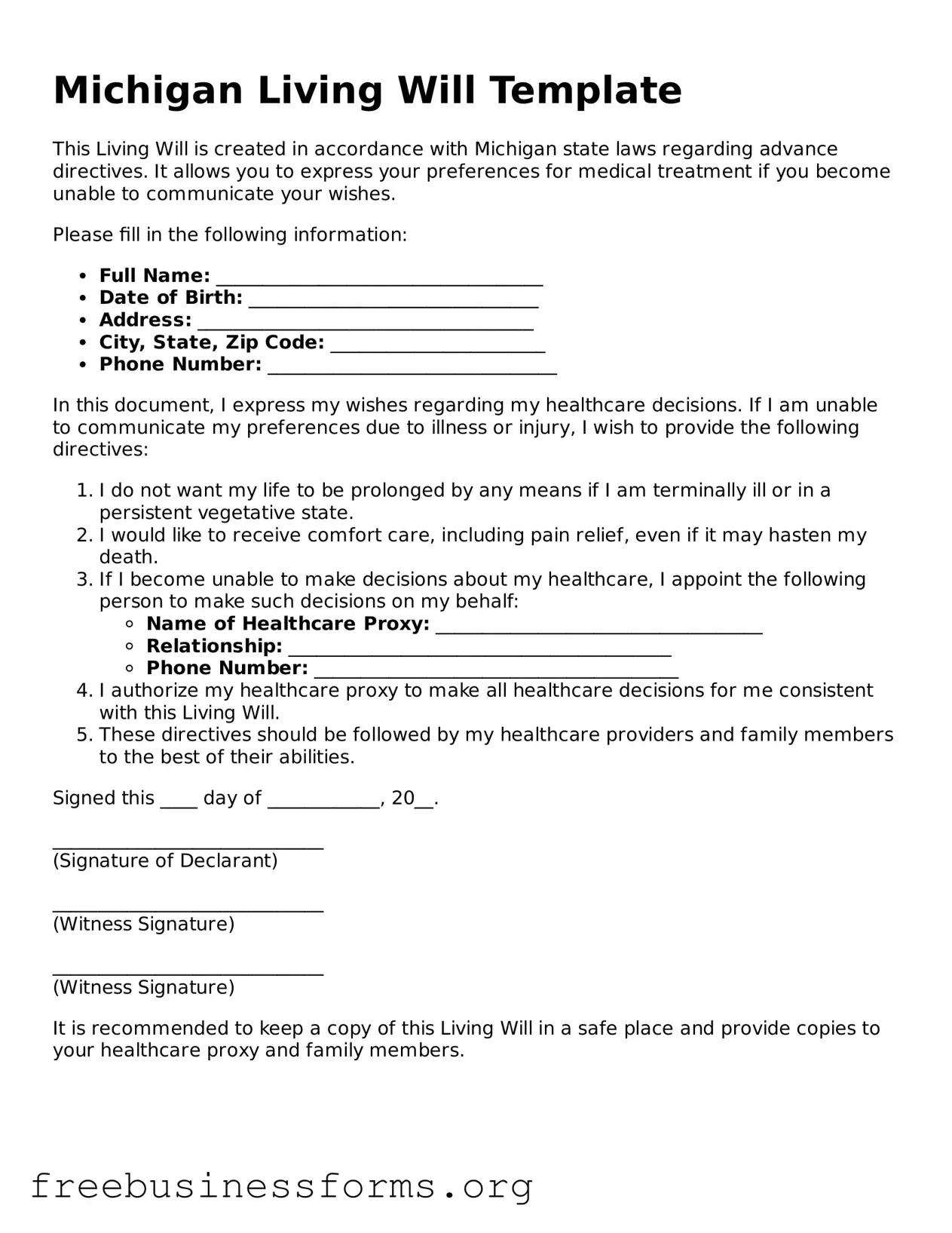Blank Living Will Template for Michigan
A Michigan Living Will form is a legal document that allows individuals to outline their preferences for medical treatment in the event they become unable to communicate their wishes. This form serves as a vital tool for ensuring that healthcare providers and loved ones understand a person's desires regarding life-sustaining measures. By completing this document, individuals can maintain control over their medical care, even when they are unable to express their choices directly.
Open Form Here

Blank Living Will Template for Michigan
Open Form Here

Open Form Here
or
↓ PDF File
Quickly complete this form online
Complete your Living Will online quickly — edit, save, download.